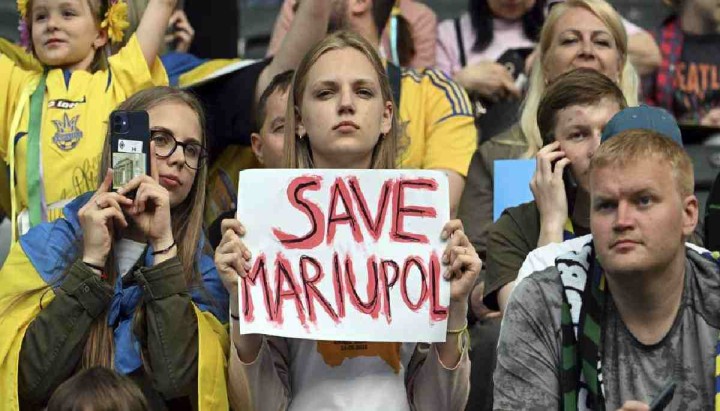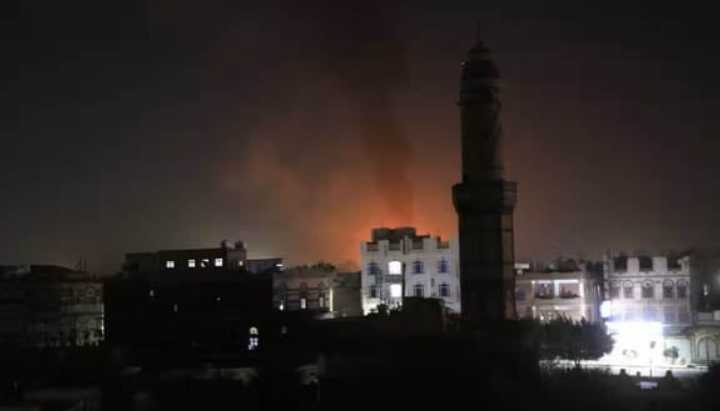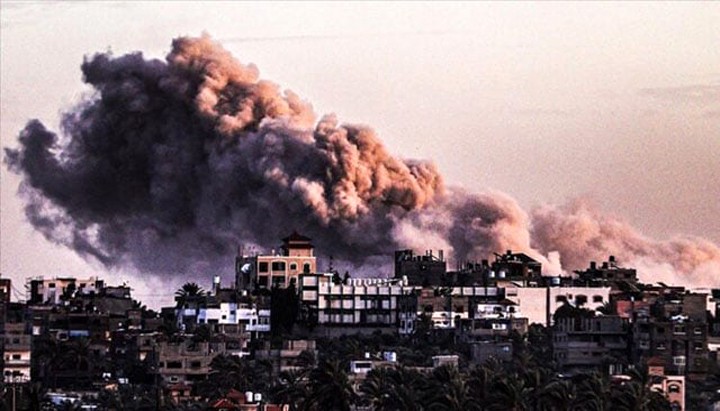Ukraine’s top prosecutor disclosed plans Wednesday for the
first war crimes trial of a captured Russian soldier, as fighting raged in the
east and south and the Kremlin left open the possibility of annexing a corner
of the country it seized early in the invasion.
Prosecutor General Iryna Venediktova said her office charged
Sgt. Vadin Shyshimarin, 21, in the killing of an unarmed 62-year-old civilian
who was gunned down while riding a bicycle in February, four days into the war.
Shyshimarin, who served with a tank unit, was accused of
firing through a car window on the man in the northeastern village of
Chupakhivka. Venediktova said the soldier could get up to 15 years in prison.
She did not say when the trial would start.
Venediktova’s office has said it has been investigating more
than 10,700 alleged war crimes committed by Russian forces and has identified
over 600 suspects.
Many of the alleged atrocities came to light last month
after Moscow’s forces aborted their bid to capture Kyiv and withdrew from
around the capital, exposing mass graves and streets and yards strewn with
bodies in towns such as Bucha. Residents told of killings, burnings, rape,
torture and dismemberment.
Volodymyr Yavorskyy of the Center for Civil Liberties said
the Ukrainian human rights group will be closely following Shyshimarin’s trial
to see if it is fair. “It’s very difficult to observe all the rules, norms and
neutrality of the court proceedings in wartime,” he said.
On the economic front, Ukraine shut down a pipeline that
carries Russian gas across the country to homes and industries in Western
Europe, marking the first time since the start of the war that Kyiv disrupted
the flow westward of one of Moscow’s most lucrative exports.
But the immediate effect is likely to be limited, in part
because Russia can divert the gas to another pipeline and because Europe relies
on a variety of suppliers.
Meanwhile, a Kremlin-installed politician in the southern
Kherson region, site of the first major Ukrainian city to fall in the war, said
officials there want Russian President Vladimir Putin to make Kherson a “proper
region” of Russia — that is, annex it.
“The city of Kherson is Russia,” Kirill Stremousov,
deputy head of the Kherson regional administration appointed by Moscow, told
Russia’s RIA Novosti news agency.
That raised the possibility that the Kremlin would seek to
break off another piece of Ukraine as it tries to salvage an invasion gone
awry. Russia annexed Ukraine’s Crimean Peninsula, which borders the Kherson
region, after a disputed referendum in 2014, a move denounced as illegal and
rejected by most of the international community.
Kherson, a Black Sea port of roughly 300,000, provides
Crimea with access to fresh water and is seen as gateway to wider Russian
control over southern Ukraine.
Kremlin spokesman Dmitry Peskov said it would be “up to the
residents of the Kherson region after all to decide whether such an appeal
should be made or not.” He said any move to annex territory would have to be
closely evaluated by legal experts to make sure it is “absolutely legitimate,
as it was with Crimea.”
Ukrainian presidential adviser Mykhailo Podolyak mocked the
notion of Kherson’s annexation, tweeting: “The invaders may ask to join even
Mars or Jupiter. The Ukrainian army will liberate Kherson, no matter what games
with words they play.”
Inside Kherson, people have taken to the streets to decry
the Russian occupation. But a teacher who gave only her first name, Olga, for
fear of Russian retaliation said such protests are impossible now because
Moscow’s troops “kidnapped activists and citizens simply for wearing Ukrainian
colors or ribbons.” She said “people are scared of talking openly outside their
homes” and “everyone walks on the street quickly.”
“All people in Kherson are waiting for our troops to come as
soon as possible,” she added. “Nobody wants to live in Russia or join Russia.”
On the battlefield, Ukrainian officials said a Russian
rocket attack targeted an area around Zaporizhzhia, destroying unspecified
infrastructure. There were no immediate reports of casualties. The southeastern
city has been a refuge for civilians fleeing the devastated port city of
Mariupol.
Russian forces continued to pound the steel plant that is
the last bastion of Ukrainian resistance in Mariupol, its defenders said. The
Azov Regiment said on social media that Russian forces carried out 38
airstrikes in the previous 24 hours on the grounds of the Azovstal steelworks.
The plant has sheltered hundreds of Ukrainian troops and
civilians during a monthslong siege.
Ukrainian Deputy Prime Minister Iryna Vereshchuk said
Ukraine has offered to release Russian prisoners of war if Russia will allow
the badly injured fighters to be evacuated.
An adviser to the Mariupol mayor said Russian forces have
blocked all evacuation routes out of the city. Petro Andriushchenko said there
are few apartment buildings fit to live in and little food or drinking water.
He said some remaining residents are cooperating with occupying Russian forces
in exchange for food.
Ukrainian President Volodymyr Zelenskyy suggested Tuesday
that Ukraine’s military is gradually pushing Russian troops away from Kharkiv,
the country’s second-largest city and a key to Russia’s offensive in the
Donbas, the eastern industrial region whose capture the Kremlin says is its
main objective.
Ukraine is also targeting Russian air defenses and resupply
vessels on Snake Island in the Black Sea in an effort to disrupt Moscow’s
efforts to expand its control over the coastline, according to the British
Ministry of Defense.
Separately, Ukraine said it shot down a cruise missile
targeting the Black Sea port city of Odesa.
Elsewhere, the governor of a Russian region near Ukraine
said at least one civilian was killed and six wounded by Ukrainian shelling in
the village of Solokhi, near the border. Belgorod Gov. Vyacheslav Gladkov’s
account couldn’t be independently verified, but he said the village will be
evacuated.
Ukraine’s natural gas pipeline operator said it moved to
stop the flow of Russian gas through a compressor station in part of eastern
Ukraine controlled by Moscow-backed separatists because enemy forces were
interfering with the station’s operation and siphoning off gas.
The hub handles about one-third of Russian gas passing
through Ukraine to Western Europe. But analysts said much of the gas can be
redirected through another pipeline from Russia that crosses Ukraine, and there
were indications that was happening. In any case, Europe also gets natural gas
from other pipelines and other countries.
It was not clear whether Russia would take any immediate
hit, since it has long-term contracts and other ways of transporting gas.
Still, the cutoff underscored the broader risk to gas
supplies from the war.
“Yesterday’s decision is a small preview of what might
happen if gas installations are hit by live fire and face the risk of extended
downtimes,” said gas analyst Zongqiang Luo at Rystad Energy.
In other developments, Ukraine’s Foreign Ministry accused
Russia of stealing Ukrainian grain and trying to sell it on global markets. The
ministry estimates Russia may have already stolen up to 500,000 metric tons of
grain valued at more than $100 million.
And U.S. Commerce Secretary Gina Raimondo said a ban on
sales of semiconductors and other technology to Russia by the West is limiting
Russia’s ability to manufacture military equipment. Ukrainians who have found
Russian equipment reported that it was “filled with semiconductors that they
took out of dishwashers and refrigerators,” Raimondo said.
- AP/UNB








